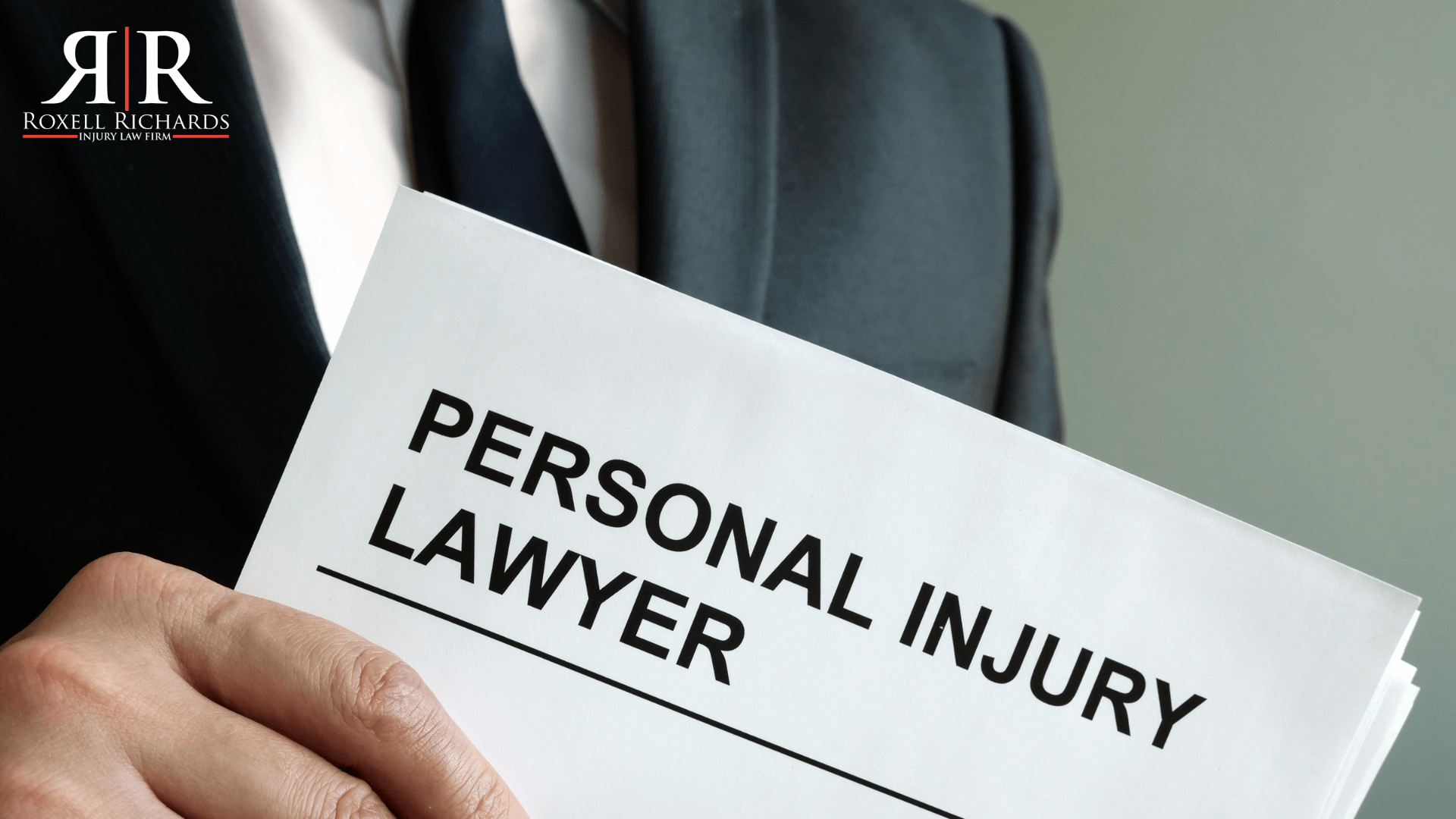How Much Is Your Personal Injury Case Worth?
Have you ever been in a car accident or are you suffering from a catastrophic injury? If so, you might be curious about the value of your personal injury claim.
Accidents involving motor vehicles and motorcycles are only two examples of events that can result in personal injury claims.
When someone’s injuries are due to another person’s negligence, they may be entitled to compensation for their injuries.
However, the value of a personal injury case depends on many factors. And this includes the severity of the injuries and the degree of fault of each party involved.
Personal injury lawyers play a critical role in defending their clients against claims of catastrophic injury.
Their goal is to protect their client’s interests and minimize the amount of damages they may order to pay. In cases where defending someone in a personal injury case, it does not necessarily mean that they are automatically at fault.
Whether you’re in Houston or anywhere else, it’s important to understand the value of your personal injury case. Personal injury attorneys can help you navigate the legal process and work towards a fair outcome. By understanding the factors that determine the value of your case, you can better advocate for your rights. And ultimately, seek the compensation you deserve.
In this article, we’ll explore what personal injury is all about. Plus, the factors that determine the value of a personal injury case.
Understanding Personal Injury
To begin with, personal injury refers to the legal situation wherein they seek compensation for injuries due to someone else’s actions or negligence.
Personal injury attorneys in law firms play a crucial role in advocating for their clients. And also ensuring they are not unfairly held liable for damages that they did not cause.
These attorneys employ various strategies, such as investigating the accident, gathering evidence, and negotiating settlements with the defendant’s legal team.
Personal injury attorneys use a variety of tactics and strategies to defend their clients. These may include investigating the circumstances of the accident, gathering evidence, and building strong protection to protect their client’s interests.
They may also negotiate with the plaintiff’s attorney to reach a settlement that is favorable to their client.
It’s important to remember that defending someone in a personal injury case does not mean that they are automatically at fault. Because accidents happen, it’s up to the legal system to determine who is responsible and how much they should legally pay.
Personal injury attorneys play a vital role in ensuring that their clients receive fair treatment. And that they are not unfairly held liable for injuries they did not cause.
Factors That Determine the Worth of a Personal Injury Case
When it comes to determining the worth of a personal injury case from a perspective, several key factors come into play. The extent of the injury is a crucial factor in evaluating the case’s worth, as severe injuries may require extensive medical care and rehabilitation.
Medical expenses and lost wages are also taken into consideration, as they can significantly impact the value of a settlement offer.
Additionally, pain and suffering is another important factor for personal injury law attorneys to evaluate. Because it encompasses both physical and emotional distress from the injury,
Furthermore, the degree of fault of each party’s involvement and any evidence that may affect liability is taken into account. And this is especially when determining a reasonable settlement offer.
The ultimate goal of the plaintiff’s attorney is to seek compensation that adequately addresses the losses their client is suffering from. And also ensures to not burden them with undue financial strain.
Compensatory and Punitive Damages as Factors for Personal Injury case worth
If you or a loved one is suffering from a personal injury, it is important to seek legal advice from an injury lawyer. Personal injury claims have some complications, and having a lawyer on your side can help you navigate the process.
One of the factors that can affect the value of a personal injury case is the type of injury you are suffering from. There are many types of catastrophic injuries that can result from accidents. And this includes brain injuries, spinal cord injuries, and burns.
In addition to the type of injury, the long-term effects of the injury are also important to consider. For example, a brain injury may have long-term cognitive and physical effects that can impact the victim’s ability to work and enjoy life.
Compensatory and Punitive Damages Defined
When it comes to personal injury claims, compensatory and punitive damages are two types of damages that the court may award. Compensatory damages are made to compensate the victim for their losses. For example, medical bills, lost wages, and pain and suffering are samples of losses. Punitive damages, on the other hand, are made to punish the property owner for their negligence. And to also discourage them from engaging in similar behavior in the future.
In a personal injury case, the amount of award for compensatory and punitive damages depends on the circumstances of the accident. And this also includes the severity of the injury. A skillful injury lawyer can help you understand your legal options and work to ensure that you receive the compensation you deserve.
Overall, personal injury claims can be complex, and it is important to seek legal advice from an injury lawyer to ensure the protection of your rights. If you or a loved one is suffering from a catastrophic injury due to the negligence of a property owner, don’t hesitate to reach out for help.
Examples of Compensatory and Punitive Damages
Compensatory Damages
Compensatory damages intend to compensate the injured person for their losses. These damages are made to help the victim recover from their injuries and return to their previous state before the accident. They can further divide into two subcategories: economic and non-economic damages.
- Economic damages are quantifiable losses which you can calculate using actual monetary figures. These damages include medical expenses, lost wages and property damage. And including other out-of-pocket expenses that are from the accident.
- Non-economic damages, on the other hand, are more subjective and are more difficult to calculate. They include pain and suffering, emotional distress, and loss of enjoyment of life. Moreover, loss of consortium (which is the loss of a spouse’s companionship, affection, and support).
The jury usually determines these damages, and they can vary widely according to the individual circumstances of each case.
Punitive Damages
Punitive damages, on the other hand, intend to punish the wrongdoer and deter them from repeating their harmful behavior in the future. In fact, the award for punitive damages is usually in cases where the defendant’s conduct was particularly egregious, intentional, or malicious.
These damages are often much higher than compensatory damages. And they can serve as a warning to others who may consider engaging in similar conduct.
For example, let’s say that a person is injured in a car accident due to a drunk driver. The injured person may be entitled to compensatory damages for their medical bills, lost wages, and pain and suffering.
However, after discovering that the drunk driver had a history of driving under the influence, and continued to do so despite knowing the risks. Then the injured person may also be entitled to punitive damages.
This is because the drunk driver’s conduct was not only negligent but also reckless and dangerous, and therefore deserves punishment.
As such, damages are an important factor in personal injury cases. Compensatory damages are to help the victim recover from their losses. While punitive damages are to punish the wrongdoer and deter them from engaging in harmful conduct in the future.
Understanding the different types of damages can help injured individuals. And more importantly, their families navigate the legal process and seek the compensation they deserve.
Common Types of Personal Injury Cases Defended by Personal Injury Attorneys
In personal injury lawsuits, insurance companies often provide a defense for their policyholders.
Personal injury defense attorneys with competent experience, work closely with insurance companies. Because this will help evaluate the value of a case and determine the best strategy for defending their clients
- Car Accidents: Personal injury attorneys represent clients involved in car crashes. Thus, seeking compensation for injuries due to negligent drivers or unsafe road conditions.
- Slip and Fall Cases: Attorneys defend individuals who were suffering injuries from slip and fall accidents on someone else’s property. And this is due to hazardous conditions like wet floors or uneven surfaces.
- Medical Malpractice: These attorneys advocate for patients who were victims of medical negligence. And this includes surgical errors, misdiagnoses, or medication mistakes, seeking compensation for their injuries.
- Product Liability Claims: Attorneys represent individuals with injuries due to defective products pursuing compensation from manufacturers or distributors. For example, faulty machinery, dangerous drugs, or malfunctioning consumer goods.
- Dog Bites: Personal injury attorneys defend victims of dog attacks. And also seeking compensation from the dog owner or property owner for the injuries sustained in the incident.
Role of Lawyers in Your Personal Injury Case
- Legal Representation: Personal injury lawyers serve as advocates for injured individuals, providing legal representation to protect their rights.
- Case Evaluation: Lawyers assess the merits of the personal injury case, determining its potential value and advising clients on their legal options.
- Negotiations: Attorneys negotiate with insurance companies and the opposing party’s legal team to secure fair compensation for their client’s injuries and losses.
- Court Representation: If necessary, personal injury attorneys represent their clients in court, presenting arguments and advocating for fair compensation. You can check their case results and testimonials.
- Expertise in Settlements: Attorneys use their experience to negotiate fair settlements that consider all aspects of their client’s injuries and losses.
By understanding the common types of personal injury cases a personal injury defense attorney defends. Then you can better understand how these professionals approach their work and protect their client’s interests.
Conclusion
Whether elsewhere or in Houston, personal injury lawyers are the ones who can really help you determine the value of your case. So if ever you’re involved in a personal injury case, don’t hesitate to Text us at (+1)832-281-5906 or call us at 713-974-0388
We can assist you in determining the worth of your case. And, win it at the same time.






